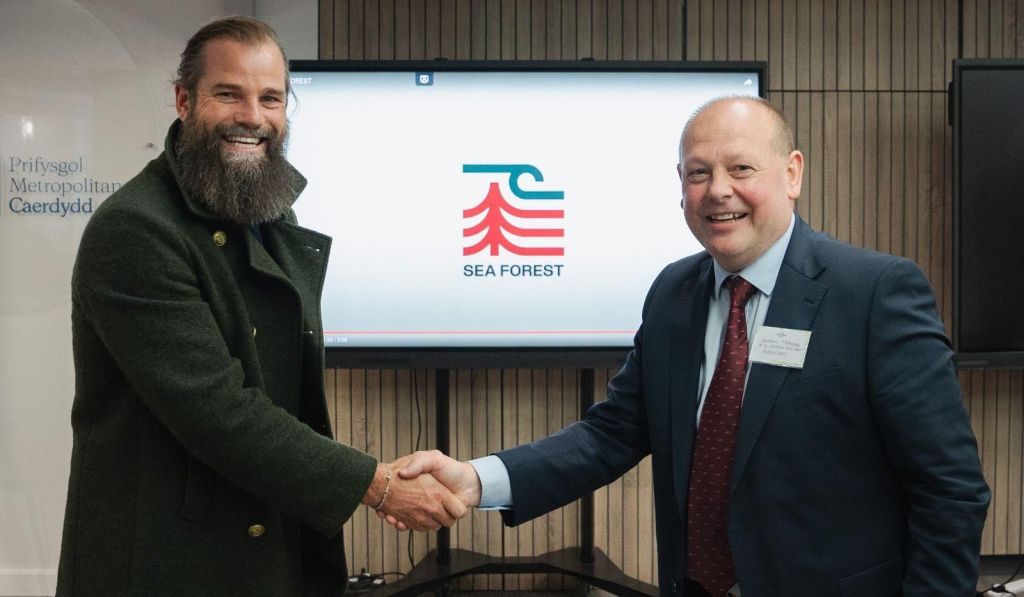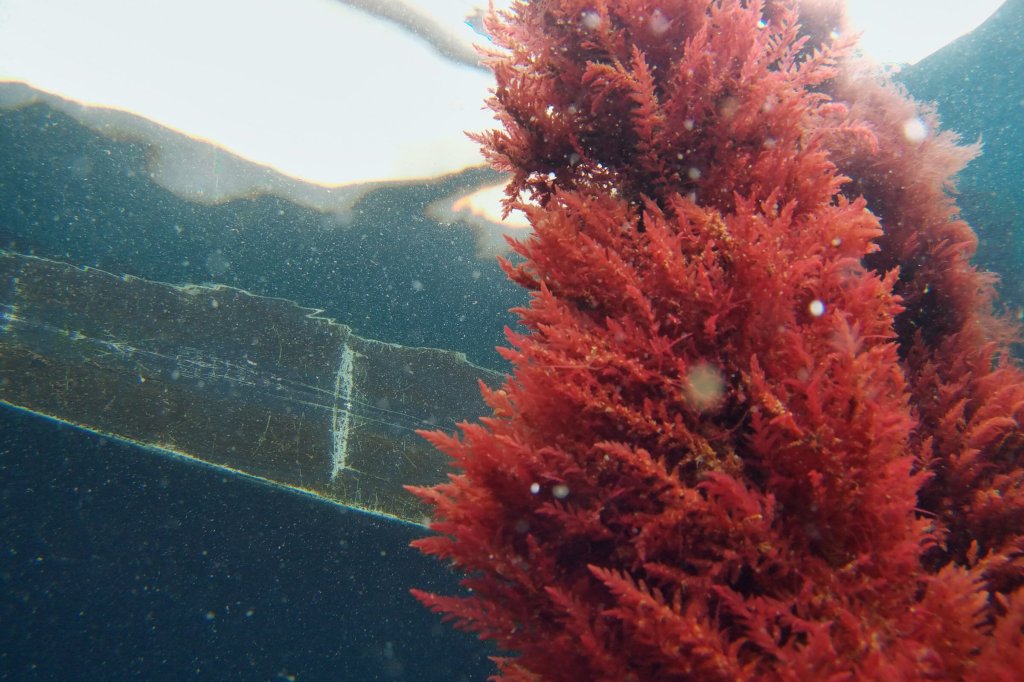Tasmanian climate tech Sea Forest has partnered with Morrisons to fast track the ranging of lower carbon beef products on the UK supermarket chain’s shelves.
A recent finalist for the Royal Foundation’s Earthshot Prize, Sea Forest will work with Myton Food Group, Morrisons’ manufacturing arm, exclusively to supply its methane abating livestock feed – SeaFeed.
Morrisons said in a statement that while approval for the process is still being worked through, if successful, customers should be able to purchase lower carbon beef products such as mince, burgers, steaks, and joints at Morrisons by 2026.
The supermarket added that the partnership supports its ambition to achieve net zero agriculture emissions from its directly supplied farms by 2030, five years ahead of the market. In another example of its net zero efforts, Morrisons recently became the first supermarket to introduce its own carbon neutral egg.

Sea Forest claims that just 0.5% of its SeaFeed product – made from Australia’s native red seaweed, Asparagopsis – can cut methane production by up to 90% when included as a tiny fraction of an animal’s regular diet, without impacting the taste or quality of the beef.
Sea Forest has also cooperated with Australian burger chain Grill’d to introduce a beef burger made from grass-fed black Angus cattle that is said to produce 67% less methane emissions.
Sam Elsom, CEO of Sea Forest, said of its overseas expansion, “Our trials with beef, dairy and wool producers across Australia and New Zealand have demonstrated excellent results and we are delighted to partner with Morrisons to make a meaningful impact on climate change at an international scale.”
Sophie Throup, Technical and Sustainability Director at Myton Food Group for Morrisons, said that the retailer’s position as British farming’s biggest direct customer would enable it to quickly develop its lower carbon beef products following approval.
Morrisons noted its partnership with Sea Forest is the latest step in an overarching research programme with Queen’s University Belfast into the use of seaweed to reduce enteric methane emissions.
Professor Sharon Huws, Director of Research, Queen’s University Belfast, School of Biological Sciences and Institute for Global Food Security (IGF), said, “We are delighted to be working closely with Morrisons and Sea Forest to provide the scientific evidence underpinning the journey towards net zero in the Morrisons beef chain. Innovation is at the centre of the IGFS ethos, and this collaboration is an important example of how our research translates into impact for the sector, and indeed for the health of our planet”.
Sea Forest is one of a group of Australian climate tech start-ups working to get Asparagopsis seaweed products into livestock feeds at scale – CH4 Global recently teamed with traditional protein manufacturer CirPro Australia to process the first group of cattle to have been fed commercial quantities of CH4 Global’s methane-reducing feed additive.
The impact of red seaweed on global warming

The UN’s Food and Agriculture Organization estimates that methane from burping cattle releases about 2.1bn tonnes of CO2-equivalent a year globally, compared with the 37.5bn tonnes of CO2 from burning fossil fuels. As methane is about 80 times more potent than CO2 in terms of warming the planet over a 20-year period, reducing its output is viewed as a way to slow global warming faster.
The Asparagopsis species of seaweed has been shown to produce a bioactive compound called bromoform, which prevents the formation of methane by inhibiting a specific enzyme in the cow’s gut during the digestion of feed.
While red seaweed’s ability to tamp down on methane emissions has been scientifically verified, figures for the specific amount of reduction have been inconsistent. A July 2023 article in The Guardian reported that an Australian trial of seaweed cow feed resulted in a 28% reduction in methane, well below the promoted figures of 80 or even 96%.
However, the article suggested that factors such as measuring techniques, supplement concentration, and breed differences may have contributed to the lower results. Scientists who participated in the trial – the longest of its kind – said more research was needed to understand why the beef had not delivered the same level of emissions reductions as other experiments.
Because Asparagopsis only grows in tropical areas like Tasmania, shipping the product to other countries carries a carbon footprint. Bromoform is also known to be damaging to the ozone layer, despite its methane reducing properties.
Therefore, researchers at Queen’s said they are also looking into local seaweed alternatives for enteric emissions reduction. For example, the programme has found that UK and Irish seaweeds are rich in phlorotannins, which are anti-bacterial and improve immunity, therefore offering potential health benefits for animals.
To stay up-to-date on the latest industry headlines, sign up to Future Alternative’s enewsletter.
Posted on:


